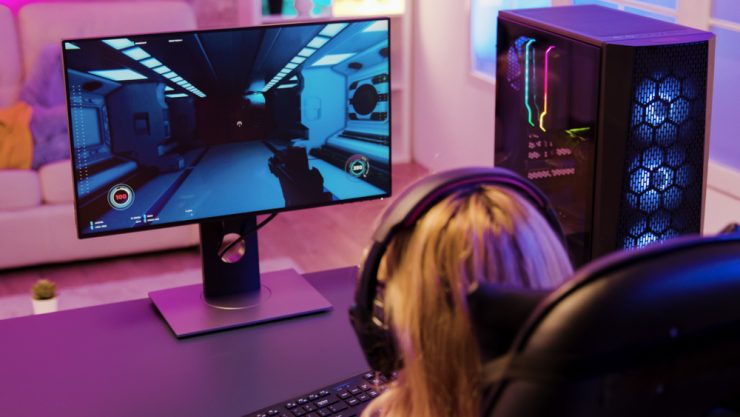If you’re looking to play games on a computer but you are often on the road or prefer a more portable system you can use in any room you like, you’re set on getting yourself a gaming laptop. Although they carry many similarities, choosing a gaming PC from a laptop is quite different. For one, you will not have to think about PSUs here, and you likely cannot expect any expansion slots to be included. So make sure you pick the perfect system instead of relying on upgradability.
While you can look at existing brands that carry a line of pre-built systems, some reputable sellers allow some customizability when you order components, essentially allowing you to build it much like a desktop. That said, you should still make sure you focus on these particular specs when making or choosing your rig. Of course, there are the usual suspects like your peripherals, the size of the screen, and your storage (HDD or SSD), and aesthetic considerations, but aside from those, here are the main things you want to look at:
- Processor
The main thing about choosing the right CPU is checking your clock speed and the generation of the chipset. In general, the higher the clock speed (measured in GHz), the better your CPU can handle applications and processes, making it essential for intensive gaming. You also have to factor in the generation, though, as a newer generation could outperform an older one even with lower clock speed. You should look at how many cores it has, as more of it increases the number of applications you can run simultaneously and lightens the load for each processing unit.
- RAM
Your random-access memory is one of the crucial factors that will allow you to play the latest games, so here is where you want to a higher number in GB because that means faster memory. With that, you can run more apps and handle more intensive games. It would also do you well to check how many slots your laptop will have, in case you want to add more in the future. Just make sure that if you upgrade your RAM, check first if your motherboard and processor can handle more RAM and are compatible.
- GPU
Check for integrated graphics or a dedicated video card. It will determine how well your graphics in-game are rendered and can prevent tears, stuttering, and lag. If you are opting for integrated graphics, its performance will also rely heavily on how much RAM you have. Dedicated graphics are optimal since they carry their own memory and can have a more powerful impact, especially if you tweak in-game resolution and textures.
- Cooling
Having a suitable temperature is vital for your laptop to run smoothly and to prevent its parts from frying when you boot it up and use it heavily. Make sure you check what internal fans and heatsink are used in your laptop and see what other cooling features it has. Getting any external cooling peripherals should not be a requirement if you have a well-built machine.
- Battery
Since laptops have batteries, crucial for portability if you don’t have an outlet or if the power’s out, make sure you have good battery life and a decent overall lifespan.
While it may seem initially pricier to go for the best system, that’s just a part of futureproofing your machine so that you can use it for years to come. If budgeting, you can adjust accordingly by making some specs compensate for others.


